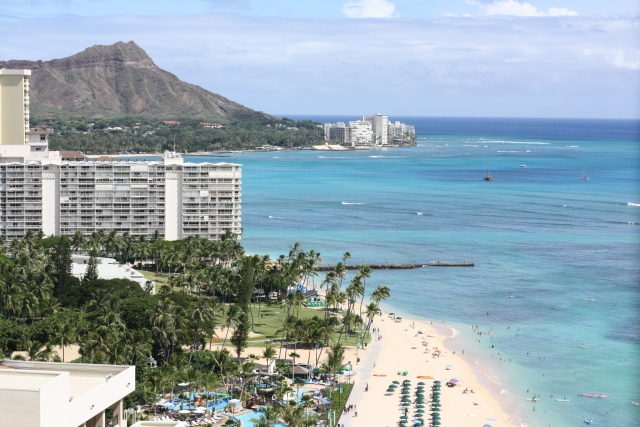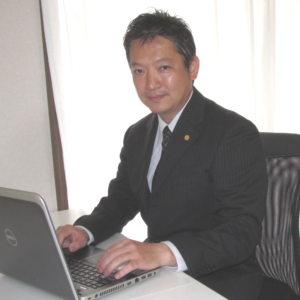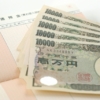Employing Foreigners in Hotels and Inns

With the rapid increase in foreign tourists and the hosting of the Olympics, there has been a surge in the opening of hotels, inns, and private lodgings. Consequently, the employment of foreigners in hotels and inns is also on the rise.
However, foreigners need visas and residency qualifications, and not all types of work or all foreigners can be employed. Here, we will examine what types of foreigners can be employed depending on the type of job.
- 1. Residency Qualifications for Working in Hotels and Inns
- 2. Obtaining Work-Type Residency Qualifications to Work in Hotels and Inns
- 2.1. Working in Hotels and Inns with an “Engineer/Specialist in Humanities/International Services" Visa
- 2.2. Tasks Permitted Under the “Engineer/Specialist in Humanities/International Services" Visa
- 2.3. Foreigners Eligible to Apply for a “Technical, Humanities, and International Services" Visa in Hotels and Ryokans
- 2.4. Required Documents for Applying for a “Technical, Humanities, and International Services" Visa in Hotels and Ryokans
- 3. Employing “Specified Skilled Workers" in Hotels and Ryokans
Residency Qualifications for Working in Hotels and Inns
Foreigners must have a residency qualification to stay in Japan. These qualifications include work-type residency qualifications, which limit the types of work that can be performed, and status-of-residence qualifications, which do not limit job types. Additionally, there are qualifications outside the scope of employment which, when granted, allow work to be performed.
Work-type residency qualifications are those intended for employment purposes. Therefore, the type of work one can do is determined by the specific residency qualification.
Work-Type Residency Qualifications for Working in Hotels and Inns
There are four types of work qualifications that allow employment in hotels and inns.
“Engineer/Specialist in Humanities/International Services" Visa is intended for jobs that utilize knowledge or skills acquired at universities or other institutions. In hotels and inns, this visa may allow work in front desk operations, interpretation/translation, sales/marketing, and other administrative roles (such as accounting, general affairs, human resources, and legal affairs).
“Skills" Visa, specifically for chefs, may also allow employment in hotels and inns. If a hotel has a restaurant specializing in foreign cuisine (such as Chinese or Italian), a foreigner with over 10 years of experience in that field can work there.
However, this visa restricts the individual to only the specific type of cuisine (e.g., Chinese or Italian) and they must focus solely on that area of cooking even if the restaurant serves a variety of dishes.
On the other hand, the “Specified Skilled Worker" visa introduced in April 2019 includes a category for Accommodation, which covers “front desk, planning & public relations, guest service, and restaurant services related to accommodation services."
For tasks such as cleaning or bed-making in hotels and inns, the “Specified Skilled Worker" visa for accommodation cannot be used. Instead, a “Specified Skilled Worker" visa for building cleaning is required.
Status-of-Residence Qualifications Allowing Any Type of Work
Status-of-residence qualifications include visas such as “Permanent Resident," “Special Permanent Resident," “Spouse of a Japanese National," “Spouse of a Permanent Resident," and “Long-Term Resident." These visas have no employment restrictions, so holders can work in any type of job, including those in the entertainment industry.
Thus, all jobs within hotels and inns can be undertaken.
Work Permit Required for Part-Time or Casual Work on “Student" or “Dependent" Visas
With “Student" or “Dependent" visas, working is generally not permitted. However, with a work permit, one can work up to 28 hours a week in most jobs except those in the entertainment industry.
Obtaining Work-Type Residency Qualifications to Work in Hotels and Inns
We will now explore work-type residency qualifications in detail. As mentioned above, the work-type residency qualifications that allow work in hotels and inns include “Engineer/Specialist in Humanities/International Services," “Skills" (chef), and “Specified Skilled Worker" for both accommodation and building cleaning fields.
Details about “Skills" for chefs are covered in another article, so we will focus on “Engineer/Specialist in Humanities/International Services" and “Specified Skilled Worker" here.
Working in Hotels and Inns with an “Engineer/Specialist in Humanities/International Services" Visa
The “Engineer/Specialist in Humanities/International Services" visa is a representative work visa that allows a wide range of activities. However, it is generally intended for white-collar work and does not cover jobs considered simple tasks.
For instance, tasks such as cleaning, bed-making, parking lot management, restaurant work, store operations, and luggage handling in hotels and inns cannot be performed under the “Engineer/Specialist in Humanities/International Services" visa.
Tasks Permitted Under the “Engineer/Specialist in Humanities/International Services" Visa
So, what tasks can be performed with the “Engineer/Specialist in Humanities/International Services" visa?
For reference, there is a document created by the former Immigration Bureau titled Clarification of Residency Qualifications for Foreigners Working in Hotels and Inns.
This document includes actual cases of permitted work, so we will pick up on the types of work that were approved from this document.
- Front desk operations using foreign languages
- Facility guidance for foreign tourists within the hotel
- Interpretation and translation for negotiations with travel agencies in the home country to expand customer base
- Foreign language instruction for employees
- Marketing research to expand the customer base
- Public relations tasks such as creating promotional materials (websites, etc.) for foreign tourists
- Handling requests from foreign tourists
- Planning and proposing accommodation plans
- Creating foreign language versions of the website
- Translation and other tasks for multilingual signage within the facility
- Restaurant concept design
- Advertising and public relations tasks
Broadly speaking, these can be categorized into front desk operations, marketing operations, and interpretation/translation tasks. Such tasks can be performed under a “Technical, Humanities, and International Services" visa. Although not listed here, concierge services might also fall under this category.
Foreigners Eligible to Apply for a “Technical, Humanities, and International Services" Visa in Hotels and Ryokans
To obtain a “Technical, Humanities, and International Services" visa, the foreign applicant must meet certain educational and work experience criteria. Generally, it is necessary to have graduated from a university (including junior colleges and graduate schools) or specialized in tourism or hotel management at a Japanese vocational school. The specific major at the university is not a strict requirement. For instance, our office has successfully obtained visas for individuals who specialized in civil engineering in graduate school and then worked in hotels. Additionally, having over 10 years of experience in hotel front desk, marketing, management, etc. also meets the criteria. For detailed information on applying for the “Technical, Humanities, and International Services" visa, please refer to the following link:
Required Documents for Applying for a “Technical, Humanities, and International Services" Visa in Hotels and Ryokans
- Application form (Application for Certificate of Eligibility or Application for Change of Status of Residence)
- Photo H4cm x W3cm
- Copy of passport (for Certificate of Eligibility application)
- Passport … for presentation (for Change of Status application)
- Residence card … for presentation (for Change of Status application)
- Diploma from university or vocational school (if applying based on educational background)
- Certificate of completion as a specialist (for vocational school graduates)
- Transcript (for vocational school graduates)
- Certificate of employment proving over 10 years of practical experience (if applying based on work experience)
- Copy of employment contract or employment conditions notification (with applicant’s signature or seal)
- Statement of reasons for hiring
- (For listed companies) Copy of the Shikiho or document proving listing on the stock exchange
- (For others) Copy of the previous year’s withholding tax statement for employees (with tax office stamp)
- Financial statements
- Certificate of registered matters (company registry)
- Copy of the hotel’s or ryokan’s website or brochure
- Any document proving a high number of foreign customers (though not commonly required recently)
Employing “Specified Skilled Workers" in Hotels and Ryokans
In April 2019, a new visa category called “Specified Skilled Worker" was introduced. This visa is intended to allow for more flexible employment of foreigners in 13 industries facing severe labor shortages. Unfortunately, as with many recent administrative reforms by the Japanese government, the system turned out to be quite inconvenient. Nonetheless, the fact that a broader range of tasks for foreigners is now recognized is undoubtedly a groundbreaking development in Japan’s foreign worker administration. It is hoped that the system will evolve into a more flexible and widely used framework in the future.
Conditions for “Specified Skilled Workers"
To employ foreigners under the “Specified Skilled Worker" visa, the focus is not only on the foreign worker’s qualifications but also on the hiring hotel’s or ryokan’s system and planning. These aspects will be explained in a separate article. Here, we will describe the requirements for the foreign workers themselves. For all categories of “Specified Skilled Workers," the foreign worker must first pass a certain level of Japanese language proficiency test and a skills test related to the job. The Japanese language test can be either JLPT N4 or a test specifically for “Specified Skilled Workers." Additionally, there is a skills test for the accommodation sector. Details and application for the accommodation sector skills test can be found on the Japan Accommodation Industry Skill Test Center’s website. The test is conducted both in Japan and overseas but is not scheduled at regular intervals; rather, it is announced sporadically. After the foreign worker passes these two tests and is hired by a hotel or ryokan that employs “Specified Skilled Workers," the hotel or ryokan will apply for a Certificate of Eligibility (if inviting from overseas) or a Change of Status of Residence (if hiring a foreigner already in Japan) to grant the “Specified Skilled Worker" visa.
“Specified Skilled Worker" Visa in the Accommodation Sector
The “Specified Skilled Worker" visa for the accommodation sector is intended for foreigners working in hotels and ryokans. The job scope is defined as “front desk, planning and public relations, customer service, and restaurant services related to accommodation services." There is overlap with the “Technical, Humanities, and International Services" visa, but tasks like door attendant, bell attendant, cloakroom, shop, and restaurant service that cannot be performed under the “Technical, Humanities, and International Services" visa are included in this visa category.
“Specified Skilled Worker" Visa in the Building Cleaning Sector
Cleaning and bed making are some of the most labor-intensive tasks in hotels and ryokans. For these tasks, the “Specified Skilled Worker" visa for the accommodation sector does not apply; instead, the visa for the building cleaning sector is used. According to the Ministry of Justice’s guidelines, the building cleaning sector is expected to involve the following tasks:
Cleaning tasks for buildings used by a large number of users (excluding residential buildings) aimed at protecting hygienic conditions, maintaining aesthetics, ensuring safety, and improving preservation. This involves selecting appropriate methods, detergents, and tools based on differences in location, parts, building materials, and types of dirt, to perform cleaning work, remove environmental pollutants present in the building, and maintain cleanliness.
Basically, this involves only cleaning tasks and does not seem to include bed making. However, in hotels, cleaning and bed making are typically handled by the same department or person, and it is not realistic to assign these tasks to different individuals.
Details about the building cleaning skills test can be found on the Japan Building Maintenance Association’s website.









